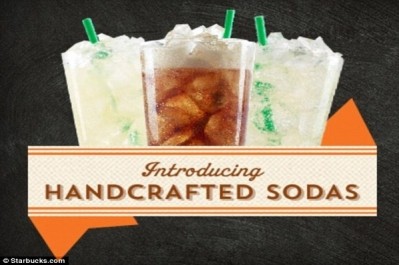Steve Hills, European contract manufacturing director, reveals ambitious six-year plan
‘Agile capital-light innovation’: PepsiCo Europe targets 600% growth in contract manufacturing

Speaking at the Global Pharmaceutical Contract Manufacturing (GPCM) Conference, Steve Hills, European contract manufacturing director at PepsiCo made the following bold proclamation:
“Over the next six years, PepsiCo Europe will increase the size of its contract manufacturing business six-fold without increasing our number of suppliers, and without a significant increase in internal management resources,” he said
Sharing his ideas on how Pepsi – which has 22 one billion dollar brands globally – Hills said the company was at the “start of a significant journey” since the majority of its EU business involved in-house manufacturing.
“We’ve enjoyed times of plentiful capital, and our growth has been driven by core brands and acquisition,” he told his pharmaceutical industry audience.
“But that environment is changing. As a business we need to adapt to this and hence the growth aspiration I described earlier,” he added.
PepsiCo made a global decision about two years ago that contract manufacturing should sit within the supply chain organization, Hills explained. Before this it straddled many different business units – everything from procurement and commercial to supply chain and R&D
“This led to pockets of best practice, and consolidation of best practice really just did not happen,” he said.
In Europe PepsiCo now has a single contract manufacturing function split across different categories, with category managers sitting on respective supply chain category leadership teams as well as in their single function – to ensure uniformity of execution.
Why the increased focus on contract manufacturing?
“Our intention is to build a scale, lean European contract manufacturing business – enabling PepsiCo’s growth in agile capital-light innovation and productivity,” Hills said.
As with many FMCG businesses, he added, the demand for top-line growth within PepsiCo rose while capital availability fell.
“To succeed in this category we need a different way of funding our asset base for this growth,” Hills said.
Contract manufacturing is one answer, because in many markets PepsiCo is already No.1 or No.2 in its operating categories, he explained, so there is a need to innovate ‘out of core’.
“By definition this is higher risk than categories that we know well, so a lower risk lower investment solution is required,” he said, emphasizing that PepsiCo also works hard with suppliers to increase productivity.
The company may want to test a product in a market seen as high risk, Hills said, initially using a resource-light contract manufacturer model, before possibly bringing production in-house following market tests.
“One alternative driver may be the need to develop a product using capability that PepsiCo doesn’t already have, to develop a product in our space that is more innovative,” he added.
But for the most part PepsiCo operates a capacity- rather than capability-based beverage model, Hills said, using the same technology as competitors or its potential contract suppliers.
“Advantage in that supply chain is therefore driven by brand and product, where the concentrate ingredient is key,” he said.
The critical supply chain consideration is getting the appropriate capacity in the appropriate geography. In the world of beverages, you don’t want to be shipping water around a continent,” he added.
Summing up, Hills said contract manufacturing lies at the “heart of change” in standardizing how PepsiCo operates, and plays a key function in its supply chain in terms of innovation and productivity gains.
Contracts handed to ‘strategic partners’ varied from one year to 10 years long, he said, with length determined by factors such as (1) alternatives on offer for Pepsi (2) the benefits to the soda giant of a longer contract, say a lower margin offer or willingness to invest in automation.
As a $66bn turnover business globally PepsiCo’s suppliers tend to be much smaller firms, Hills added, with many clocking reporting less than $100m in sales.
This benefits Pepsi because it offers a large pool of potential suppliers, he said, who were unlikely to be serious rivals and who offered real agility.
Nonetheless, he admitted that companies on this scale are less likely to have productivity expertise, but said PepsiCo could supply to partners, who can then leverage these learnings across their portfolios.
However, hinting that Pepsi wanted to work more closely in future with fewer key suppliers on ‘common objectives’, Hills said this had been a weak area for his company until now.
“The local approach taken previously has led to a large number of smaller suppliers without the capability to become strategic partners,” he said.
“One of the work streams to achieve six-fold growth is to identify those partners who will help us on this journey,” Hills added.
“Basic common objectives are obvious. Both parties want the product to be successful, to invest behind it, grow it further to benefit the top and bottom line for both parties.”
*Co-writing credit, Dan Stanton












